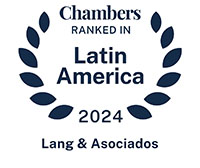In the dynamic landscape of employment in Costa Rica, the concept of moonlighting, or engaging in secondary employment, is subject to crucial legal considerations and constraints.
While some employees may have the right to pursue additional job opportunities, the evolving nature of work, particularly the rise of remote employment, has introduced new challenges and potential pitfalls. This article delves into the legal intricacies of moonlighting in Costa Rica, urging both employers and employees to be vigilant in upholding legal boundaries.
With the introduction of widespread work-from-home arrangements, the lines between professional and personal spheres have become blurred. In our experience, we have witnessed a concerning trend where the flexibility of remote work has incentivized some employees to engage in moonlighting activities against their primary employer’s interests, frequently without their employer’s consent and knowledge.
The privilege of working from home has, in some cases, emboldened individuals to seek additional employment opportunities without due consideration for potential conflicts of interest and overlaps in schedules.
Costa Rican labor laws generally permit moonlighting, but adherence to specific conditions is crucial to avoid conflicts of interest and legal complications. Employers and employees must recognize these legal parameters to ensure compliance with the law.
1. Non-competition and Non-conflict: Employees have the freedom to pursue a second job, provided it does not involve working for a direct competitor or create conflicts of interest with their primary employment. The Good Faith Principle in labor law stresses the importance of maintaining transparency and loyalty to the primary employer.
2. No Overlapping Work Hours: To prevent the erosion of work quality and uphold the Good Faith Principle, employees engaging in moonlighting must meticulously avoid overlapping their daily working hours between primary and secondary employment. This is not just a contractual obligation but a fundamental aspect of maintaining trust and fulfilling commitments to both employers.
The surge in moonlighting, fueled by the flexibility of remote work, should prompt employers to review and reinforce internal policies and employment contracts. Businesses must assess whether their employees might be violating internal guidelines, labor laws, or employment contracts by engaging in secondary employment without due disclosure or consideration for potential conflicts of interest.
Moonlighting in Costa Rica, particularly in the context of a surge in remote work, demands heightened awareness and adherence to legal boundaries. Employers must be proactive in the detection of employees that might be working for third parties in possible breach of their employment obligations, as well as in reviewing and updating internal policies to address the evolving nature of work. Simultaneously, employees should exercise caution and diligence to prevent breaches of their employment contracts.
By navigating these legal parameters with foresight and vigilance, individuals can enjoy the benefits of secondary employment while fostering a harmonious and lawful relationship with their primary employment.
Tags: #costaricalaborlaw, #costaricalawfirm, #moonlightingcostarica, #teleworkcostarica, #workfromhomecostarica


.jpg)




